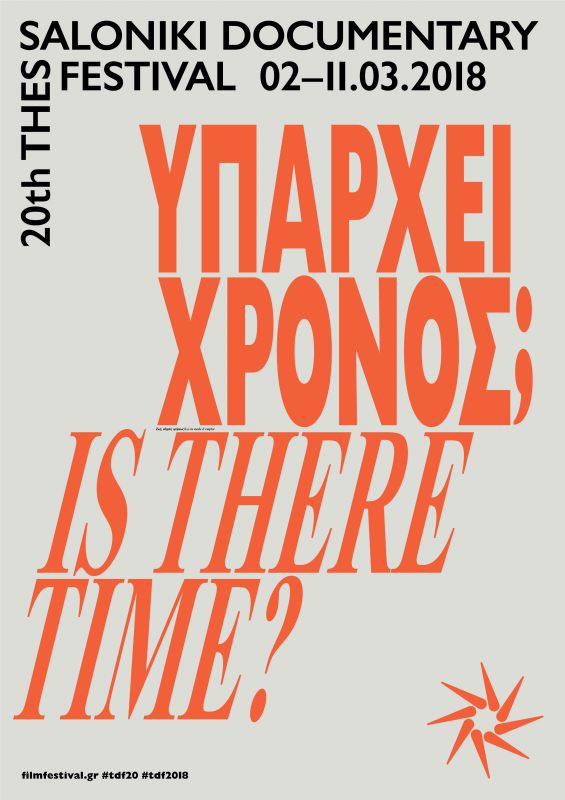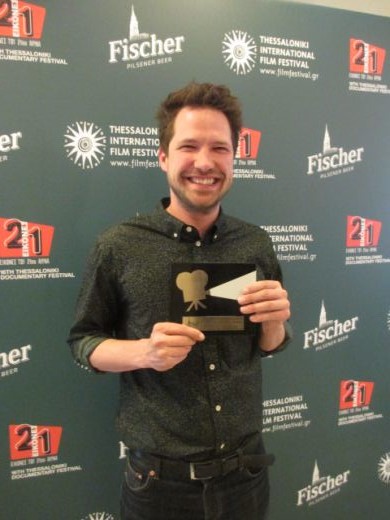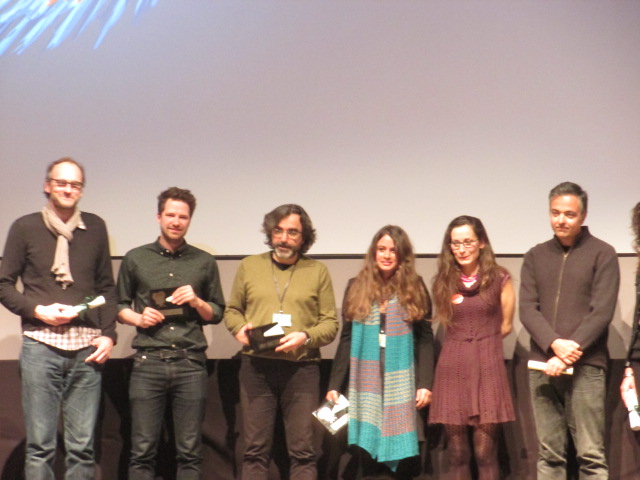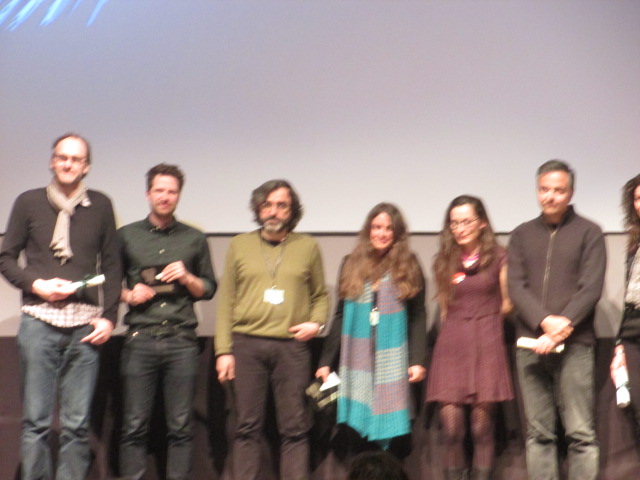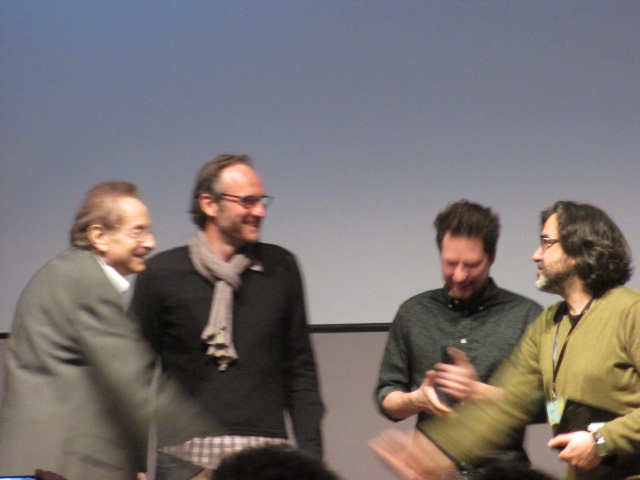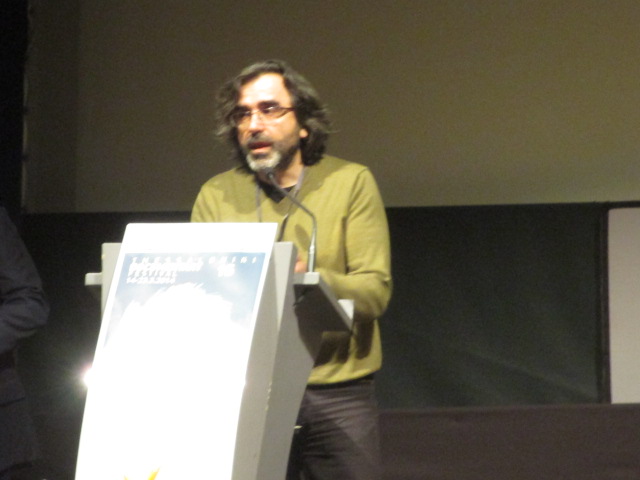|
|
||
|
Pro Tools
FILMFESTIVALS | 24/7 world wide coverageWelcome ! Enjoy the best of both worlds: Film & Festival News, exploring the best of the film festivals community. Launched in 1995, relentlessly connecting films to festivals, documenting and promoting festivals worldwide. Working on an upgrade soon. For collaboration, editorial contributions, or publicity, please send us an email here. User login |
'Just Talking' at 14th TDF, March 13th, 2012
photo still of 5 BROKEN CAMERAS (2011)
-14th TDF PRESS- The Just Talking session of the 14th TDF of Tuesday, March 13 hosted the directors Amalia Zepou & Lydia Carras (Dry Stone-wall, Support of the Aegean), Nikos Katsaounis & Nina Maria Paschalidou (Krisis), Guy Davidi (Five Broken Cameras), Magnus Gertten (Harbor of Hope), Eric Black & Frauke Sandig (Heart of Sky, Heart of Earth), Gaston Solnicki (Papirosen) and Margret Jonasdottir, producer of Last Days of the Arctic, directed by Magnus Vidar Sigurdsson. Heart of Sky, Heart of Earth, records the traditions of the Maya in Mexico and Guatemala today, as well as their struggle to protect themselves from the consequences of the depletion of natural resources, as well as cultural extinction. Black and Sandig said that “the Mayas are beloved to both of us. We wanted to talk about their rights, but not to make an anthropological or ethnographic film; our aim was to let them speak for themselves. We really fell in love with them; they took us inside their homes, showed us trust and respect. Also, we were surprised to learn that the Maya never talk about the end of the world in 2012 and this myth isn’t recorded anywhere. The real end is the depletion of drinking water and maize, the extinction of forest life due to mining; yet, they are a very strong people, completely different in their worldview from us in the Western world”. Palestine and the village Bilin in the West Bank is the location where Five Broken Cameras was shot; directed by Emad Burnat and Guy Davidi, it is the latter who attended the 14th TDF and the Just Talking session. Mr Davidi went to Bilin for the first time in 2005, in order to participate in activists’ demonstrations against the construction of a wall dividing Palestinian and Israeli settlements. He shot there but revisited the material in 2009, when Burnat, a Palestinian farmer and the amateur videographer of Bilin’s life, contacted him in order to collaborate in a film, as he himself had a lot of material. “Recording your own life with a video camera is a very risky in these places”, said Mr Davidi. Despite the fact that there are many films with this subject, the fact that this was told from the inside is what motivated the filmmakers. “Emad was always there; when the demonstrations finished and the press left, he kept shooting and shooting, even during the nights when the Israeli soldiers entered the village to arrest young men, accusing them that they were throwing stones”. Magnus Gertten, director of Harbor of Hope, made a documentary about the rescue of thousands of Jews from the concentration camps, transported by the Red Cross to the harbor town of Malmo in Sweden, his birthplace. Gertten said that his father was 15 years old when they arrived in Malmo and was in the harbor the day the survivors arrived in ships; and he always asked the director to make a film about it. “I always told him that if I had the archival material that showed these people standing there, in their first day of freedom, perhaps I could make that film. After I discovered that the material did exist, I felt that I needed to determine the identities of the people in it, something I thought would have been impossible. My father researched the passenger lists for months, helped me to locate the survivors and start the film”, stated Gertten. Gaston Solnicki, director of Papirosen, also talked about his father, who was “transformed” during the making of his documentary. Chronicling the story of their Jewish Argentinean family for 10 years, Solnicki said that he was looking for family ghosts, attempting to exorcise them in a way. “Papirosen is the name of an old song that has many interesting meanings in our culture. I would like to say that my films deal with love and with death and I always shoot hundreds of hours of material. For this one I had about 160 hours and it took me 2 years to edit. In this sense, they are very important to me, they are “handmade”. Topical and socially-focused is the film Krisis, by Nikos Katsaounis and Nina Maria Paschalidou. “The film is about the Greek crisis, but it was made in an atypical manner: it is the feature result of the first Greek collective multimedia project, called The Prism, in which 14 photojournalists were trained to use motion cameras and shot short films. We ended up with 27 shorts from all of Greece, while on the website there are also still photos and texts, all of which together paint an overall picture of the country during the crisis. The title of the film is spelled with a K, from the Greek verb “krino” (to ascertain), which suggests that we all need to form our own opinions of the situation”, said Ms Paschalidou. Nikos Katsaounis said: “I used this project as a way to learn about Greece; the most fascinating part was the workshop with the photojournalists. It’s a singular opportunity as far as technology is concerned, as we can share our knowledge, our stories and our histories, and create collectively, transcending the traditional way of making films. For me the project’s creativity was an excuse to relate to people, to learn and share”. Greek film Dry Stone-wall, Support of the Aegean by Amalia Zepou & Lydia Carras refers to the traditional restoration process of a destroyed dry-stone wall on the island of Sifnos. “We weren’t planning to make a film about it, just to organize a group of volunteers to assist in the rebuilding. We had the camera with us to keep visual notes about the technique and initially we edited the video to give it as a gift to the craftsmen who did the job and maybe send it to other places in Greece to promote such restorations. We never imagined we would come to the Festival with the film”, said Ms Zepou. Ms Carras emphasized the change in the attitude of the builders, who originally were suspicious, but seeing how the volunteers wanted to help, felt pride and optimism for their island. Margret Jonasdottir spoke about the film Last Days of the Arctic, which is about the renowned photographer Ragnar –Rax– Axelsson who shoots in Arctic locations under gruelling conditions. “Rax is an adventurous photographer who isn’t happy unless he is freezing or is in danger to be swallowed in a volcano”, she said. Rax grew up in a remote farm in Iceland and feels right at home in nature like this; it’s become his obsession. “He takes pictures of fishermen, ways of life and habits of the North that are becoming extinct and people who have chosen to live in remote areas, while he has spent a lot of time photographing hunters, whose survival is becoming harder because of the climatic changes”. -14th TDF PRESS RELEASE- 17.03.2012 | Thessaloniki's blog Cat. : 'Just Talking' at 14th TDF 2012 Amalia Zepou Broken Cameras Director director of Papirosen Earth Emad Burnat Entertainment Entertainment Eric Black farmer Frauke Sandig Gaston Solnicki (Papirosen) Greece Guatemala Guy Davidi Harbor of Hope Heart Iceland Lydia Carras Magnus Gertten Malmo March 13th Margret Jonasdottir Mexico mining Nikos Nikos Katsaounis Nina Maria Paschalidou (Krisis) paint Person Career Photographer Producer Quotation Red Cross Sky Sweden Technology Technology War War West Bank News
|
LinksThe Bulletin Board > The Bulletin Board Blog Following News Interview with EFM (Berlin) Director
Interview with IFTA Chairman (AFM)
Interview with Cannes Marche du Film Director
Filmfestivals.com dailies live coverage from > Live from India
Useful links for the indies: > Big files transfer
+ SUBSCRIBE to the weekly Newsletter Deals+ Special offers and discounts from filmfestivals.com Selected fun offers
> Bonus Casino
User imagesAbout Thessaloniki Mcmahon Vanessa Mcmahon Vanessa Vanessa McMahon Covered the 13th and 14th, and 16th edition. Through its tributes, it focuses both on discovering filmmakers with a unique cinematic point of view, and on the internationally recognized for their contribution to documentary. Contributions from Buno Chatelin http://tdf.filmfestival.gr/default.aspx?lang=en-US&loc=6&page=760 View my profile Send me a message My festivalThe EditorUser contributions |



















